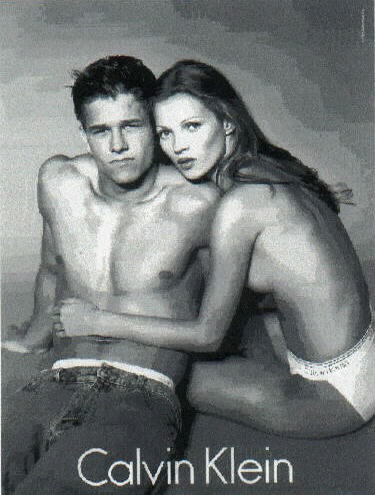 Advertisers regularly
face criticism about the ethical implications of their ads. Ethical issues
in advertising include ads that are untruthful and deceptive, manipulative,
offensive or in bad taste, reinforce or create stereotypes, foster materialism
and greed, and take advantage of people’s fears and insecurities. In an
advertising and marketing context, ethics is equivalent to a society’s
notions of right and wrong, honesty, integrity, purity and morality—these
words are practically interchangeable. Against all these notions should
an ad be judged and regulated.
Advertisers regularly
face criticism about the ethical implications of their ads. Ethical issues
in advertising include ads that are untruthful and deceptive, manipulative,
offensive or in bad taste, reinforce or create stereotypes, foster materialism
and greed, and take advantage of people’s fears and insecurities. In an
advertising and marketing context, ethics is equivalent to a society’s
notions of right and wrong, honesty, integrity, purity and morality—these
words are practically interchangeable. Against all these notions should
an ad be judged and regulated.
This particular ad from Calvin Klein might dispute many of our society’s moral convictions or ethics. Therefore, the question I want to explore is this: Does this ad, which promotes questions of morality, reflect our culture’s ideas about gender and sex roles or does it teach our society something about gender and sex roles? Does advertising as edgy as this example copy our society’s moral notion’s or create new notions?
First, we should go over the ethical issues this ad raises and determine to what degree the ad is or is not ethical before judging advertising’s role in society. One point to remember, however, is that these ethical issues are very complex and can not be explored in exhaustive or conclusive detail for our purposes.
This ad might be considered unethical by a reasonable consumer in the sense that it is in bad taste and possibly offensive, it perpetuates modern sex role stereotypes and an argument could be made about the ad being deceptive. Among these three main issues, one stands out more than the others in finding this ad to be unethical—the ad undeniably perpetuates modern sex role stereotypes.
This ad portrays three groups in a narrow, stereotypical manner: 1) young people/the single generation, 2) women, and 3) men. Because there are two young people nearly naked in the ad, this generation is represented as a sexually explicit generation. The young girl is turned completely toward the guy with her arms around him as she leans all over him. She’s also wearing nothing more than underwear. This clearly perpetuates the stereotype of women as sex objects. She looks like she’s ready to jump into bed with this guy without any inhibitions. Furthermore, the guy is half-clothed (wearing blue jeans and no shirt) and sitting very casually with a self-important grin. His facial expression is one of triumph and arrogance, while the girl’s is coy yet seductive and playful. Not only does this advertisement perpetuate three stereotypes of gender and sex roles, it quite easily can be offensive to many consumers.
Nonetheless, the real question I want to focus on is the one stated above about the role of advertising (especially unethical ads) in our society. Clearly, the advertising medium faces its full share of criticism and regulation. Now, considering this particular ad, I would (unwillingly) concede that this ad does, in fact, reflect our society instead of teaching it. It reflects our society insofar as it mirrors our stereotypical ideas about sex roles and gender, rather than our society as a whole. Therefore, any criticism of such unethical ads such as this one must synonymously be a criticism of our culture’s stereotypes. This ad offends many consumers, just as the stereotypes it perpetuates offend society at large.
Claiming that unethical advertisements teach society about immorality and the acceptability of explicit sexuality is also an accusation against advertisers. An honest question about the power of advertisers is this: How reasonable is it to charge advertisers with being less ethical than their own culture, thereby “teaching” the culture to change it’s own code of ethics to one less moral, pure and virtuous? There is no simple answer. Some may claim that advertisers do teach society merely by perpetuating and expounding upon current offensive stereotypes. Indeed, creative license also leads to many innovative and suggestive ideas, perhaps teaching society in this way. One notion is certain, however. Whatever one concludes about advertising’s influence on our culture’s ideas about gender and sex roles, advertisers invest a lot of time, money and research in creating effective and persuasive ads. Advertisers are successful in wielding their power to influence, and some exert influence to the point of testing our sensibilities and commitment to ethics.